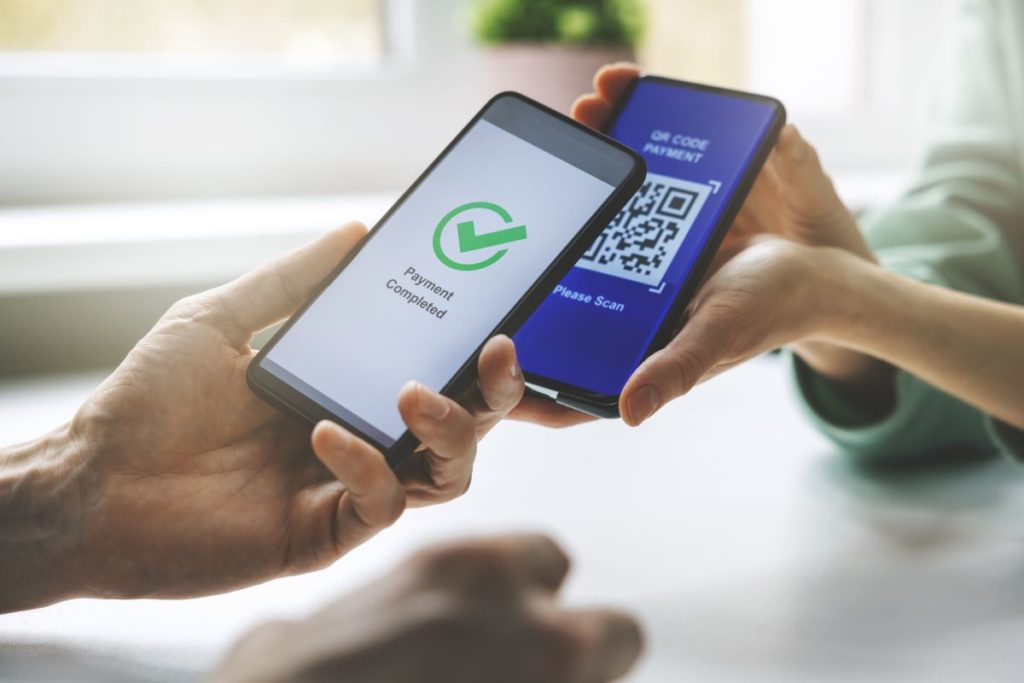
Due to global supply shortages in parts over the last 2 years, providers have struggled to meet demand for card machines. With access to terminals reduced and prices increasing, larger merchants have been mostly unaffected – the real victims have been small to medium sized enterprises (SMEs), who represent 96% of all UK businesses.
With the majority of merchants struggling to reliably source cheap payment solutions, many are asking what can be done?
Tap to Pay, Tap on Phone; you might have heard SoftPOS described by any number of names, but all describe one key idea – you no longer need to worry about securing card machines from a vendor, because now your phone can be the card machine.
Our Head of Product for Card Present Payments, Russel Fernandes, spoke at Merchant Payments Ecosystem in Berlin to answer some key questions about the future of SoftPOS for merchants:
What pains can a SoftPOS solution solve?
With cash usage falling drastically, contactless payments at its all-time high and the growth in the gig economy post-pandemic, the demand for a card-present payments solution has grown rapidly. Where previously, traditional card terminals have been the answer, eliminating the dependency on these terminals will broaden access to in-person payments and help to support an evolving payments landscape.
Furthermore, and perhaps most importantly, for merchants who are already used to the operating system and user interfaces on their phones, using SoftPOS will be significantly easier than a card machine. This will mean merchants are better equipped to deal with technical issues, as well as not being required to manage multiple devices.
Merchants are under constant pressure with the rising cost of utilities, fuel and raw materials. SoftPOS removes the need for a merchant to pay high card terminal rental fees and high acquiring fees, as most low-cost mPOS providers offset the cost of the hardware by increasing the acquiring fees, which ends up being more expensive in the long run,
As well as helping to bring costs down, SoftPOS could also open up new possibilities for merchants thanks to the relative abundance of compatible devices. For example, a restaurant might have 6 members of staff serving tables, and just 2 point of sale machines. If each server is able to use their phone as a terminal, wait times could be significantly reduced. This additional capability would help businesses get through busy peaks and drive sales by queue busting.
Are we ready for SoftPOS?
We certainly think so.
An overwhelming majority of merchants already have the technology required to allow for their mobile devices to receive payments, with an estimated 73% of all smartphones possessing NFC (contactless) capabilities. This means that for most merchants, getting set up is easy, convenient and won’t require any new hardware.
For consumers, the contactless revolution has already happened. As of 2021, 83% of consumers use contactless, with a record number of smartphones and debit cards boasting contactless capabilities. The need to have a dependency on the traditional chip-and-pin terminal will quickly decline, and without thisdependency, the transition to using mobile phones and as such SoftPOS seems obvious.
What are Trust Payments doing to help retailers?
With merchants continuing to demand dynamic, cutting-edge technology to meet evolving customer needs the decision to partner with Dejamobile to develop our own SoftPOS technology was a no-brainer. Our new SoftPOS solution will allow for merchants to accept contactless on any standard android NFC enabled device, opening up new way of accepting digital payments and providing a great customer experience.
Fernandes reiterated the importance of SoftPOS in the long-term plan for Trust Payments “This is an important step towards our Converged Commerce™ vision for our customers, enabling them to make every component of commerce easier with digitisation”.
The Payments Association
St Clement’s House
27 Clements Lane
London EC4N 7AE
© Copyright 2024 The Payments Association. All Rights Reserved. The Payments Association is the trading name of Emerging Payments Ventures Limited.
Emerging Ventures Limited t/a The Payments Association; Registered in England and Wales, Company Number 06672728; VAT no. 938829859; Registered office address St. Clement’s House, 27 Clements Lane, London, England, EC4N 7AE.







Log in to access complimentary passes or discounts and access exclusive content as part of your membership. An auto-login link will be sent directly to your email.
We use an auto-login link to ensure optimum security for your members hub. Simply enter your professional work e-mail address into the input area and you’ll receive a link to directly access your account.
Instead of using passwords, we e-mail you a link to log in to the site. This allows us to automatically verify you and apply member benefits based on your e-mail domain name.
Please click the button below which relates to the issue you’re having.
Sometimes our e-mails end up in spam. Make sure to check your spam folder for e-mails from The Payments Association
Most modern e-mail clients now separate e-mails into different tabs. For example, Outlook has an “Other” tab, and Gmail has tabs for different types of e-mails, such as promotional.
For security reasons the link will expire after 60 minutes. Try submitting the login form again and wait a few seconds for the e-mail to arrive.
The link will only work one time – once it’s been clicked, the link won’t log you in again. Instead, you’ll need to go back to the login screen and generate a new link.
Make sure you’re clicking the link on the most recent e-mail that’s been sent to you. We recommend deleting the e-mail once you’ve clicked the link.
Some security systems will automatically click on links in e-mails to check for phishing, malware, viruses and other malicious threats. If these have been clicked, it won’t work when you try to click on the link.
For security reasons, e-mail address changes can only be complete by your Member Engagement Manager. Please contact the team directly for further help.